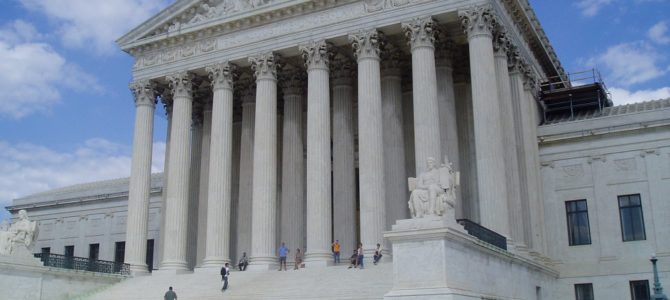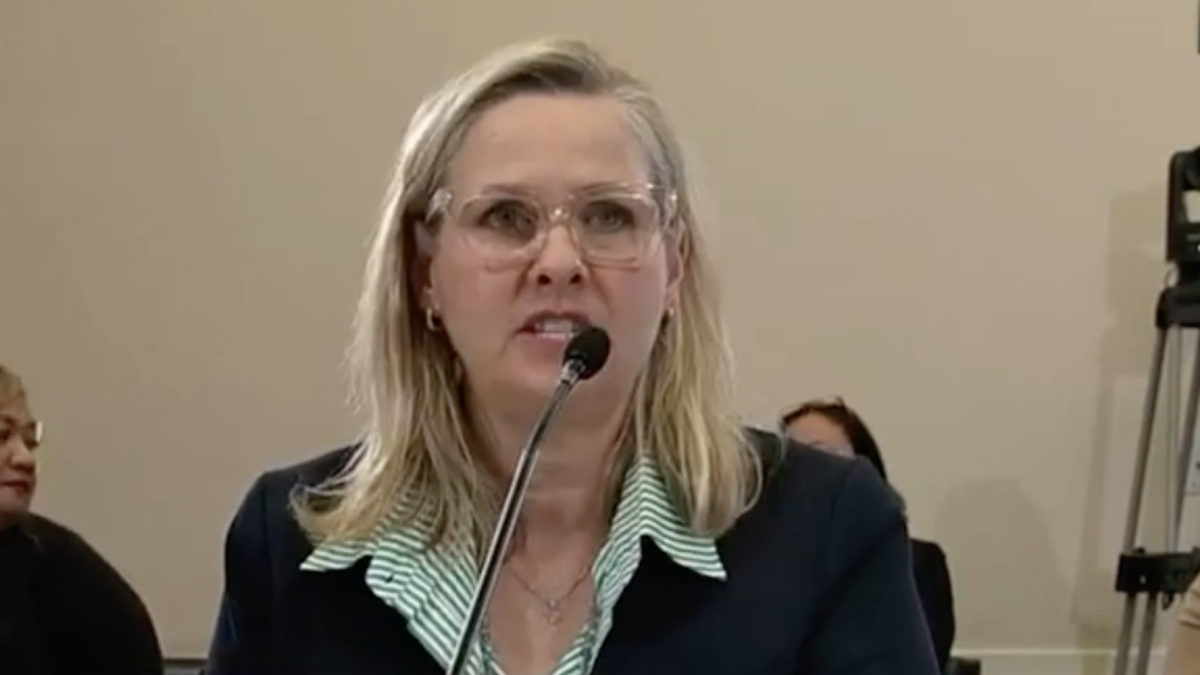
More than 300 million Americans have been directed to “stay at home” or “shelter in place” since March 19, when California Gov. Gavin Newsom issued the first of the nation’s such edicts in response to the novel coronavirus pandemic. As cases decline, governors will be pressed to prove the constitutionality of keeping these orders. States are already experiencing pushback by the courts.
On Fire Christian Center v. Fischer is just one example. Filed April 11, a Kentucky district court granted On Fire Christian Center a temporary restraining order against Mayor Greg Fischer and the City of Louisville. The mayor had employed local law enforcement to shut down the church’s drive-in services. The courts called it an overreach.
Wisconsin Democrat Gov. Tony Evers chose to retain the state’s April 7 primary date. The Supreme Court was called upon to rule whether absentee ballots could be counted after date. Such cases about relligious and voting rights in times of a national crisis are going to flood the courts, who are being asked ensure First Amendment and other rights.
“This will likely result in a wave of lawsuits,” said Kevin B. Fornshill, an adjunct law professor at George Mason University. “Anyone arrested for these mandates or emergency legislation the governor puts in place…the cases won’t hold up in court. Ultimately I think the orders will be found unconstitutional.”
Lifting Revocations of the Right to Assemble
Revoking constituents’ First Amendment right to peaceful assembly became an urgent dictate to presumably “flatten the curve” after initial projections predicted 200,000 to more than 4 million casualties in the United States. To date, 35,000 American deaths have been attributed to the virus and cases are estimated to have exceeded 690,000.
By March 30, thirty state governors had ordered constituents to “stay at home” or “shelter in place” to slow the spread of the Wuhan coronavirus. Now more than 40 states, Puerto Rico, and the District of Columbia are under emergency stay-at-home orders.
Most recently, South Carolina, Missouri, Alabama, Florida, and Georgia goverors issued statewide orders. Governors of rural states Arkansas, Iowa, Nebraska, and North and South Dakota have issued executive guidance for voluntary compliance.
Oklahoma, Utah, and Wyoming have partial orders. Oklahoma’s executive order applies to vulnerable individuals. In Utah, so far only Summit County has ordered residents to shelter in place.
States holding off on issuing blanket bans have successfully scaled down mobility and public gatherings through guidance and recommendations. Wyoming Gov. Mark Gordon issued strong guidance on social distancing, reiterating that an official “shelter in place” order should not be necessary for people “practicing common sense values.” Wyoming mobility reports have shown a significant reduction in movement and increased teleworking without an official order and has registered two Wuhan virus-attributed deaths.
Most executive orders have a renewable expiration date. As peak rates of death and infection are hit across the states, leaders are considering how to “re-open” parts of the economy to allow for private and public enterprise. East and west coast governor “pacts” amongst hard-hit COVID-19 states including New York and Washington are considering how to pull back on bans.
“As this abates, you’ll have people pushing against this ban on assemblies and that needs to happen,” said John Ryder, an attorney and election law expert. “That would be a threat to the republic itself [if bans continued without limitation]. The burden is on the governor or the executive to justify with a compelling state interest the action he is taking. Now at the face of thousands of cases and hundreds of deaths I think you can make that case. When you have fewer cases, I don’t think you can.”
Voting and Religious Rights Suspended
Two fundamental rights placed in limbo by the rulings are the right to political assembly and freedom of worship. In the case of On Fire Christian Center and other “drive-in” church services held in Florida, Texas, Virginia, and Florida, the courts have upheld the right to gather while adhering to social distancing regulations.
Most states have rescheduled primaries set to be held during the crisis. Primary delays are a serious matter, particularly for candidates lacking the funding for longer campaigns.
“Primary delays require campaigns to redo their spending plans, often while they are in the midst of running a campaign,” noted Republican strategist Adam Kincaid. “Fundraising has slowed, so a lot of campaigns will not have the money to compete as we get closer to these primaries. It also gives some candidates more time to make their case. Some campaigns will run out of money before their primaries and they will lose. If the primaries had been earlier, they would have won.”
The question is who holds authority to force a delay, Kincaid said: “Some offices have it. Some don’t. Liberals seem focused on trying to get the courts to mandate changes the law does not give them the ability to mandate. Conservatives are looking for the courts to apply the law as written. The issue in Wisconsin was that that authority did not rest with the courts or the governor and there was no time to reschedule.”
Endangering Police to Break Up Socializing
Most stay-at-home and shelter-in-place orders commit law enforcement officers to break up, fine, or jail individuals gathering in groups of ten or more.
“These [rulings] are putting officers in a tough situation,” Fornshill said. “The law enforcement officer has to go out in this gathering, get information, get identification…it’s putting them at risk for enforcing a law that is questionable constitutionally and probably wouldn’t hold up in court. Is it worth it?”
The potential for virus spread across an entire department or station is a high probability, where officers work in close contact and share vehicles. By early April more than 1,500 New York City police officers had tested positive for COVID-19. Depleted manpower is a serious concern, and an additional logistical difficulty for enforcing lockdowns.
Yes, Rights Can Be Suspended for Emergencies
Typically reserved for wartime and natural disasters, shelter-in-place and stay-at-home orders have plenty of precedent both nationally and at the state level.
During the Civil War, President Abraham Lincoln suspended habeas corpus. During World War I and II, the federal government imprisoned German-Americans and Japanese-Americans. The Influenza Pandemic of 1918 saw the closure of public schools and universities and bans on public gatherings.
Emergency declarations by governors and mayors have come in response to tornadoes, flooding, hurricanes, and other natural disasters. The declaration of martial law in post-Katrina New Orleans is one such example.
“We’ve had a number of crises that resulted in and expanded executive powers,” Ryder said.
Setting an Expiration Date for Restricting American Rights
As coronavirus cases hit a predicted national peak, leaders will be hard-pressed to determine expiration dates for their restrictions on Americans’ rights. In the months ahead, the Supreme Court will likely be called on to judge the constitutionality of numerous crisis actions.
“The next step is for the Court to determine whether the government has adopted a solution which is narrowly tailored to address the problem, and therein lies some room for serious argument,” Ryder said. “Is the quantity of 10 people narrowly tailored? There I think the public health science will be the key feature of any argument or any trial involving this issue. The government is going to have to prove that number of ten bears a reasonable relationship to the science and that there is not a less restrictive way of achieving the same result.”
While it could take years for these cases to resolve, they will have a significant effect on future attempts to suspend Americans’ rights based on very little concrete information.
“We’re going to learn a lot from this process, and I think a lot of states will go back and look at the statutory authority that they give to their executives and make decisions whether it’s too much, not enough, whether there need to be time limits,” Ryder said.









